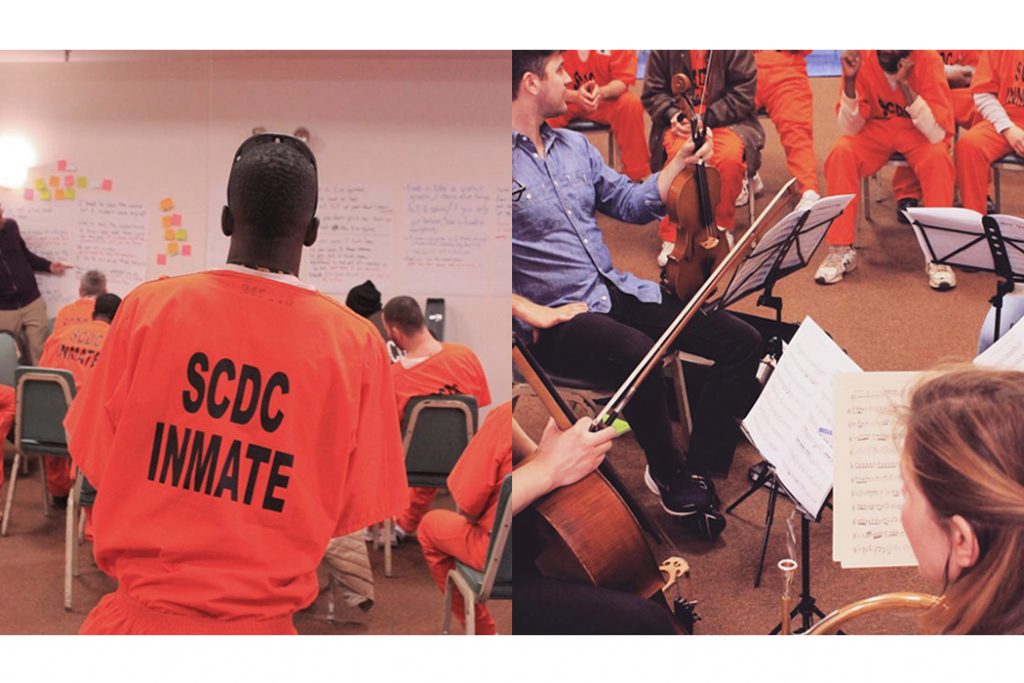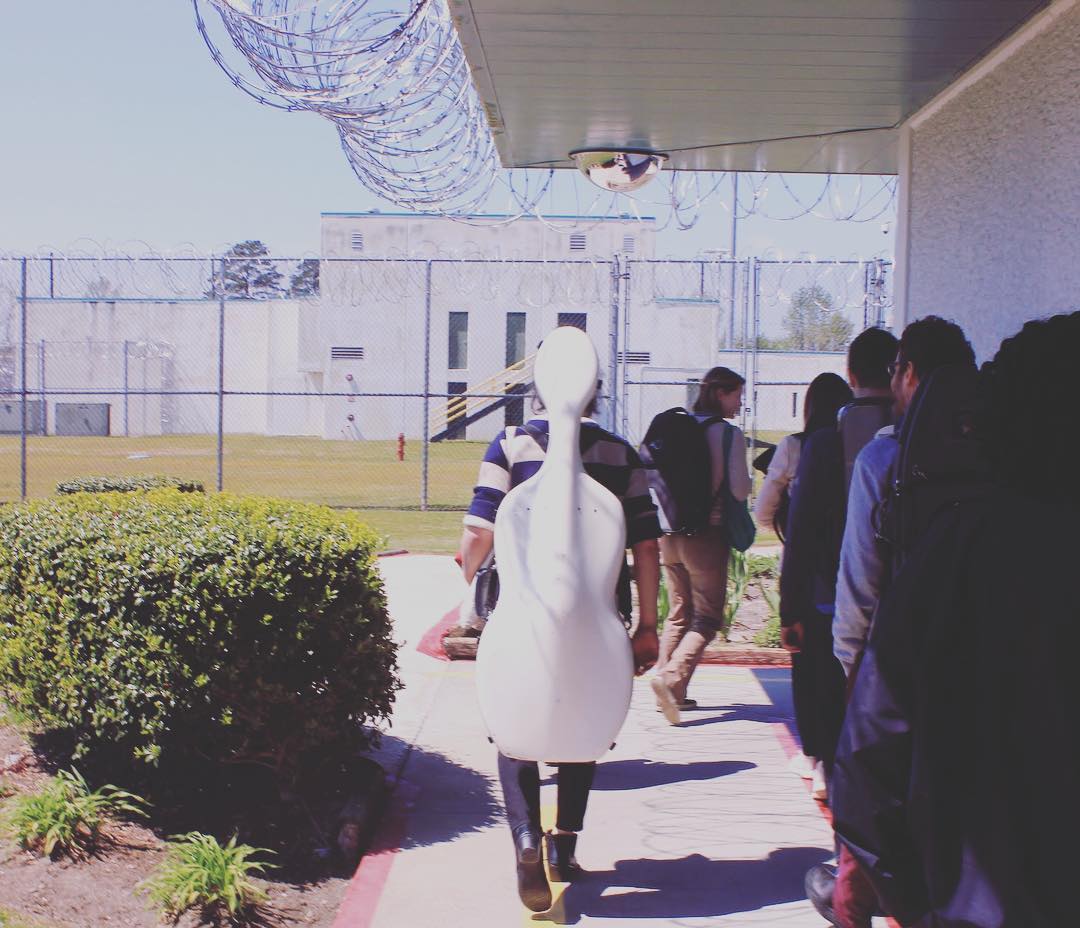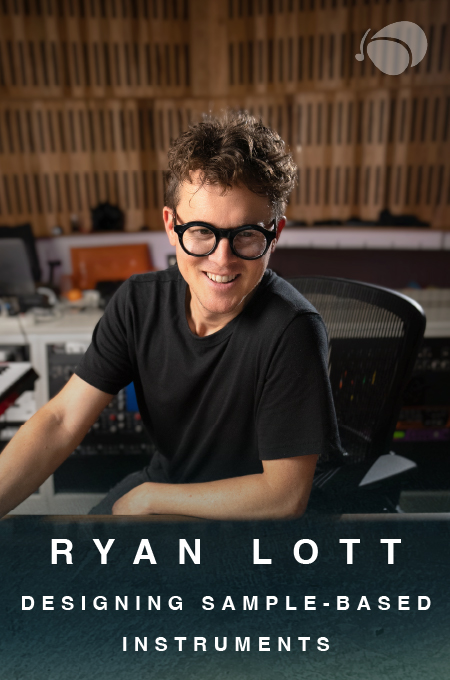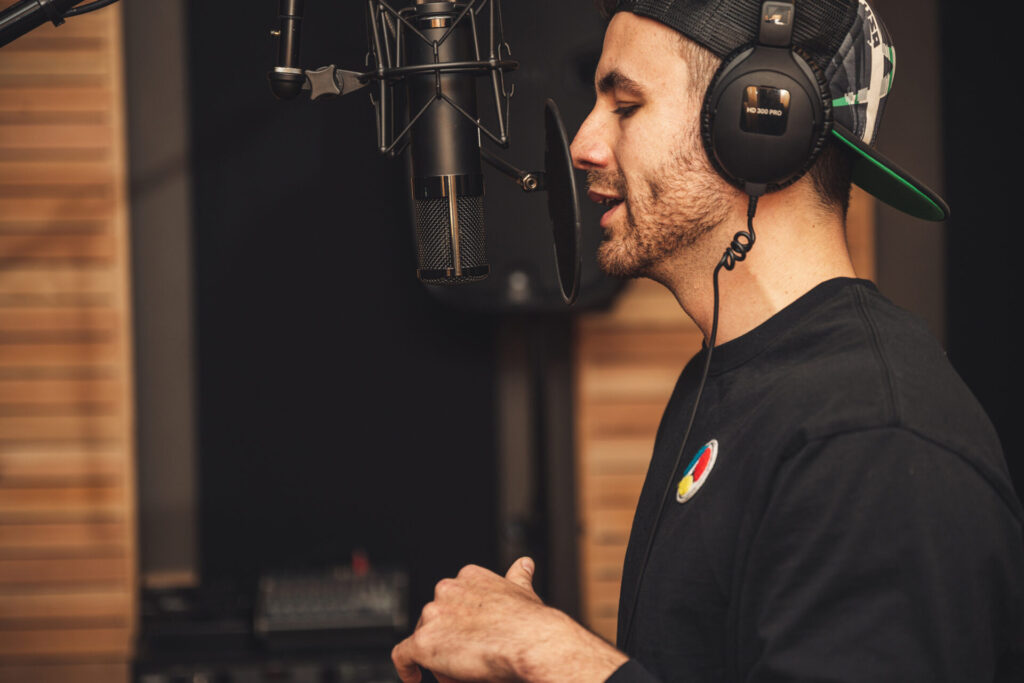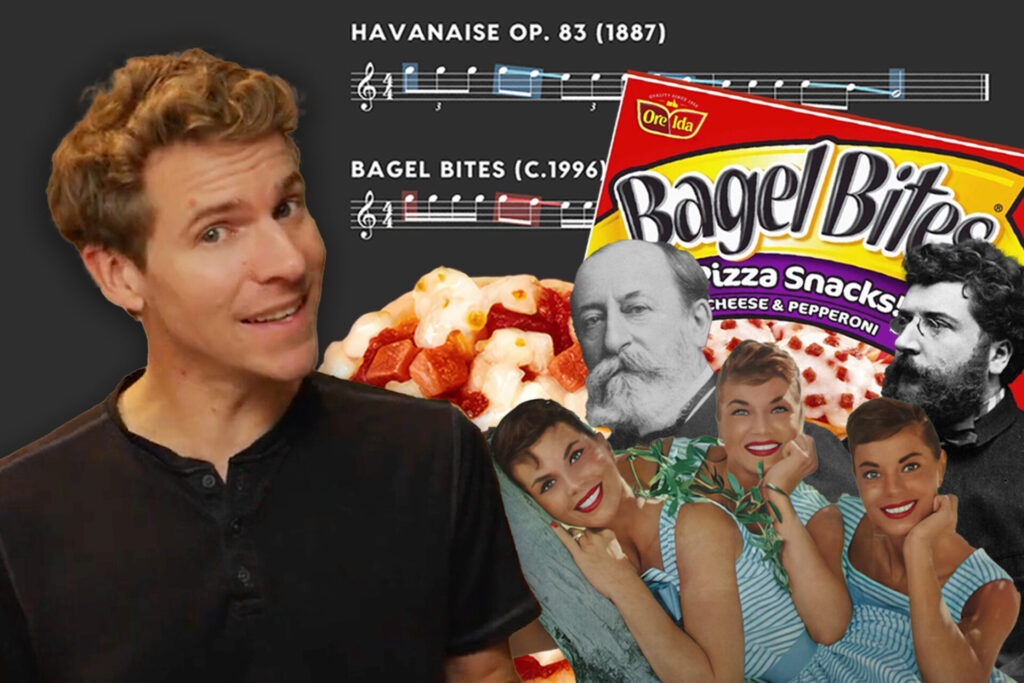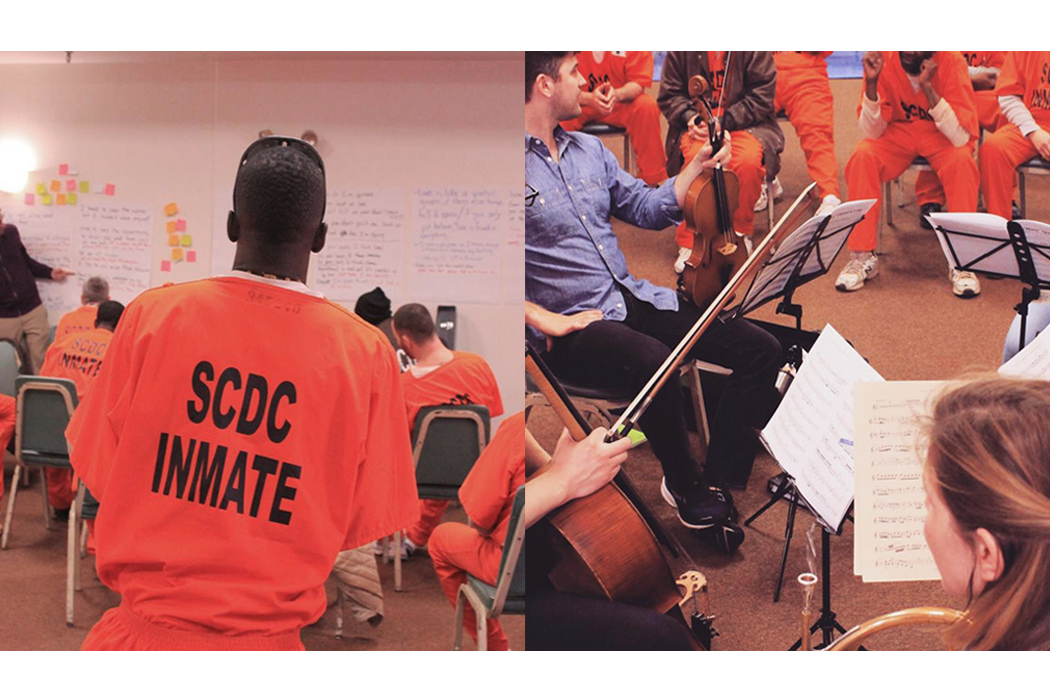
+ This week on Flypaper, we’re exclusively featuring content that covers music initiatives and recordings from prison, in our editorial series, Behind the Bars: A Week Dedicated to Music In, About, and From Prisons. Follow along via this tag or sign up for Soundfly’s mailing list to stay informed about all of our online learning programs.
By Claire Bryant
The most profound musical experiences of my life so far have been inside a prison.
Last year, I witnessed an incarcerated composer hear his string quartet for the first time played by the GRAMMY winning professional ensemble, the Attacca Quartet. He wept as the notes morphed from the wet ink into sonorous sound. Needless to say, we all wept with him.
In the very same session, the Attaccas performed the Cavatina movement from the late Beethoven “String Quartet No.13, Op. 130.” It is said that this movement was the only piece of Beethoven’s that brought the composer himself to tears.
The act of making and experiencing music holds immense power.
A Little Background
My first experience inside a prison was at Sing Sing Correctional Facility almost ten years ago. As my colleagues and I, members of Decoda, NYC-based chamber music collective, walked up to the entrance, there was a palpable sense of apprehension muddled with excitement.
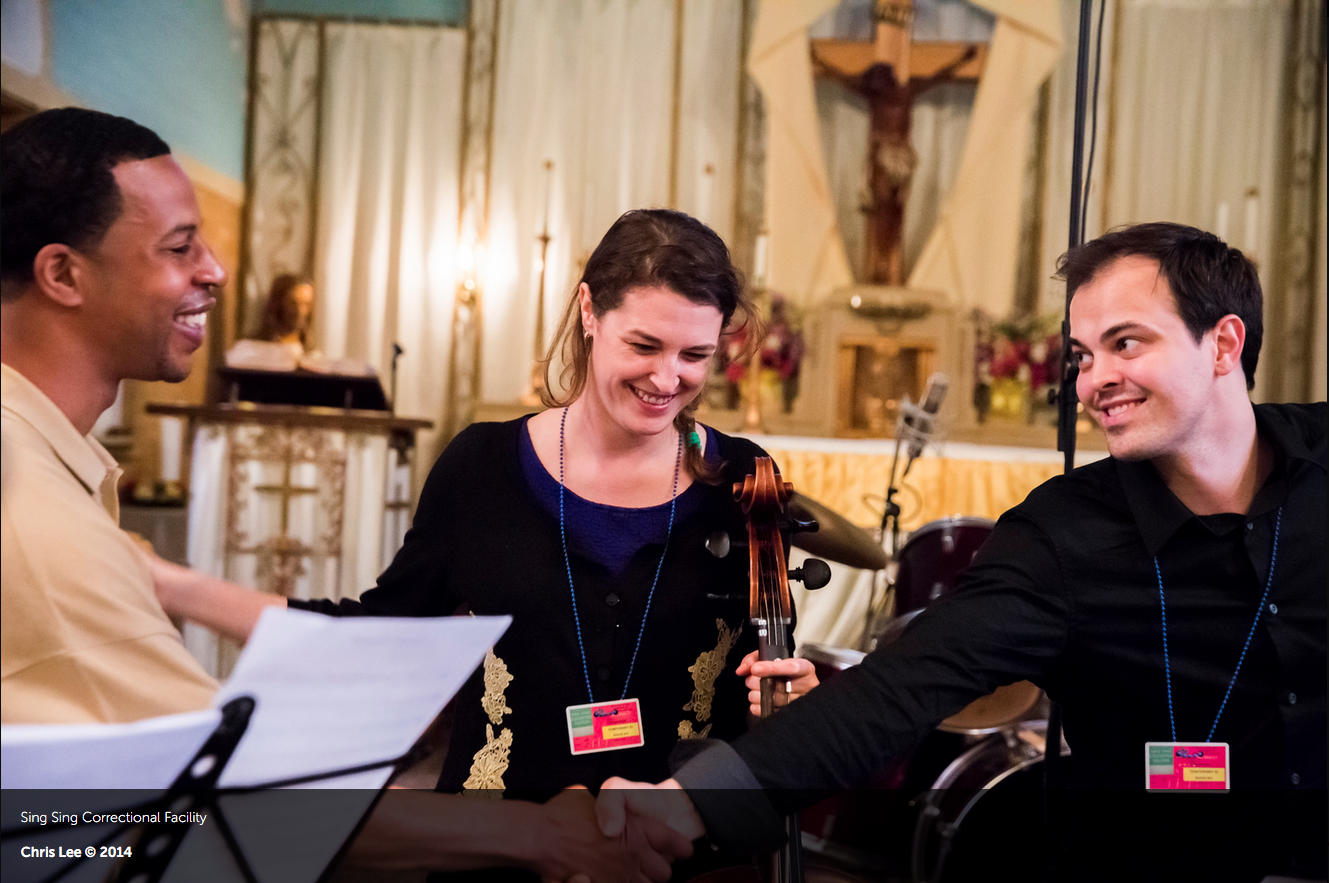
I’ll never forget my first walk through those halls, the walls were dark and foreboding; I could feel the fearful history closing around me. A prison is indeed a dark place. As we entered the school building, sounds of high-energy music welcomed us; any feelings of uncertainty and trepidation simply melted away.
As a performing ensemble, Decoda’s artists are on the constant search for ways we can make classical music “relevant.” Thankfully, the classical music world is finally catching up with the world around us by shedding light on untapped composers and artists. Decoda’s mission is to create a more compassionate and connected world through music, so naturally this doesn’t limit our activities to the concert halls.
We perform in schools, homeless shelters, health care facilities, department of disabilities, mental health facilities, assisted living homes, and prisons around the world. But over time, we started questioning the one-dimensional traditions of “performer” and “audience” — and found ourselves wondering if there were a deeper way to connect through music.
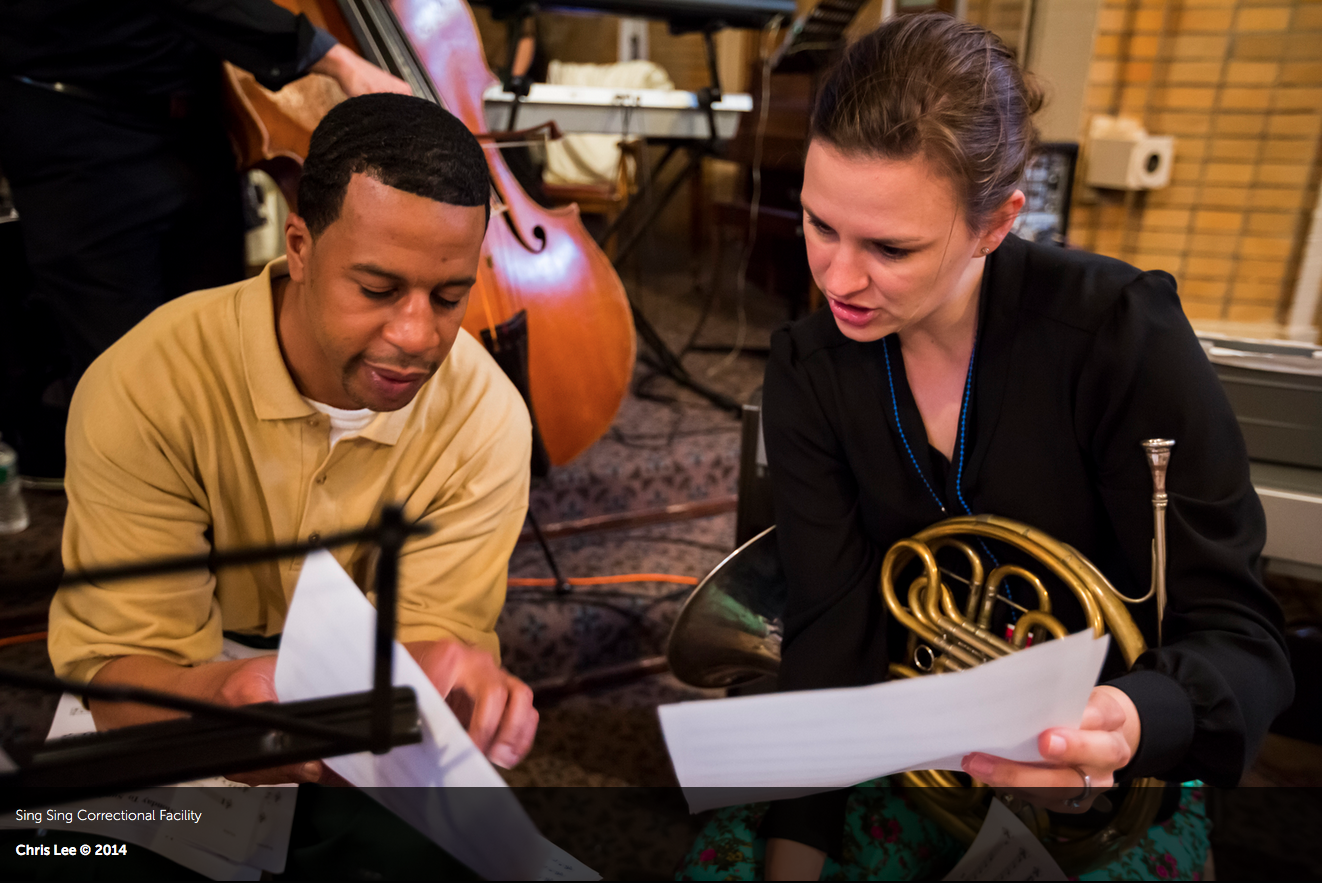
It’s a question that was answered by some of our own members who, in addition to being instrumentalists, are brilliant composers, arrangers, and transcribers. What we know (as chamber musicians) is that the acts of creating and collaborating together are why music-making is so thrilling. We wanted to give our audiences the chance to have the same experience we were having, not just as a passive listener, but as a co-creator.
Over the course of several experimental projects in high schools, hospitals, and Boys and Girls Clubs, Decoda formulated a new model of engagement — songwriting workshops for non-musicians led by classical musicians. Eventually, this platform led us to our longest-running songwriting program, at Lee Correctional Institution in Bishopville, South Carolina. The state’s largest maximum security prison.
Why Lee?
After our experiences at Sing Sing, we were eager to do more work in corrections. I grew up in a small town in South Carolina about 25 miles from Lee Correctional Institution.
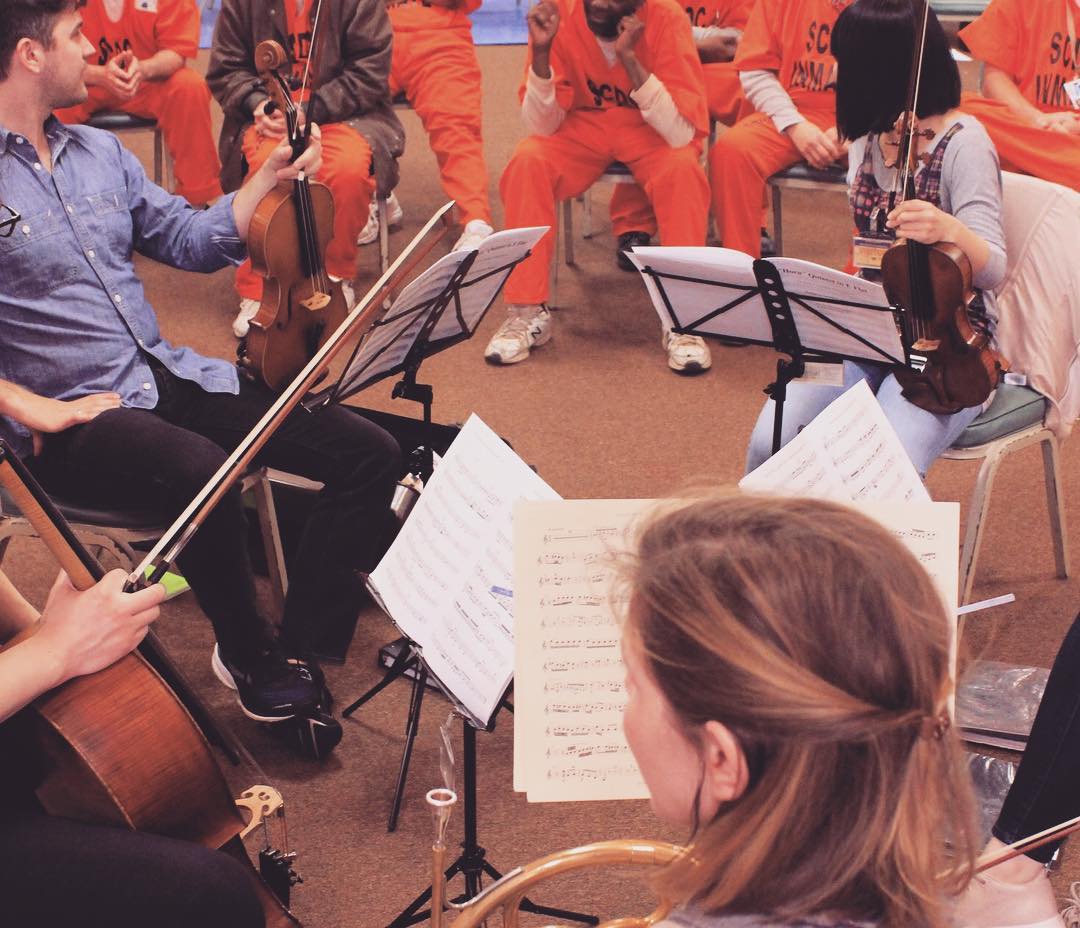
Each year, I bring Decoda from NYC to do residencies in my hometown. A family friend who is a former warden knew about a Lee CI music program run by the residents themselves. In 2014, we traveled to Bishopville to check it out.
“Sound is one of the strongest energies that I know of. It can penetrate wood, stone, even steel. Music has a way of touching our minds, our hearts, even our very souls. It can cause a vortex of emotions to swell inside of us. Music can be very compassionate and loving, but it can also be destructive. It must be wielded carefully and responsibly. Through music, even a prison’s climate can be changed.” — Jimbo (Inmate at Lee CI)
The First Visit
After a tour of the facilities, including The Yard and the character-based dorm called BLIC (Better Living Incentive Community), we were escorted to the chapel where we were greeted by a professional-caliber house band consisting of a lead guitarist, keyboard, bassist, and drummer.
Throughout the showcase they had prepared for us, we heard an eclectic mix of genres and styles and lots of fantastic singers and multi-instrumentalists. In beautiful, collaborative fashion, BLIC’s house band was backing up performer after performer with their featured songs. Already, they were playing chamber music!
We, in return, brought Brahms’ “Clarinet Quintet in B minor, Op. 115,” one of his last works and one that is deeply reflective and nostalgic. After our performance for about 200 residents, we asked the men if they would share their impressions from the performance with us. One memorable response was:
“I never have listened to classical music before, but this song was my meditation today. I was able to close my eyes for the first time in a week.”
Another one that stayed with me,
“When I signed up for the concert I didn’t realize what kind of music it would be. When I walked in and saw your instruments, my heart sank. But I actually really enjoyed it.”
It was a wonderful day that marked the start to a life-changing partnership, now in its seventh year (only to have been disrupted by a tragic prison riot in 2018 and the present pandemic).
+ Read more on Flypaper: Check out our full week of content on music in, about, and from prisons here.
Seeds of a Song
Our first big songwriting project at Lee was in April 2015 with a team of eight Decoda members (a Strauss septet and a bonus bassoon) and thirty participants from BLIC’s music program at Lee CI. BLIC’s music program serves over 150 men who learn guitar, bass, keyboards, songwriting, and music theory, taught by the men themselves.
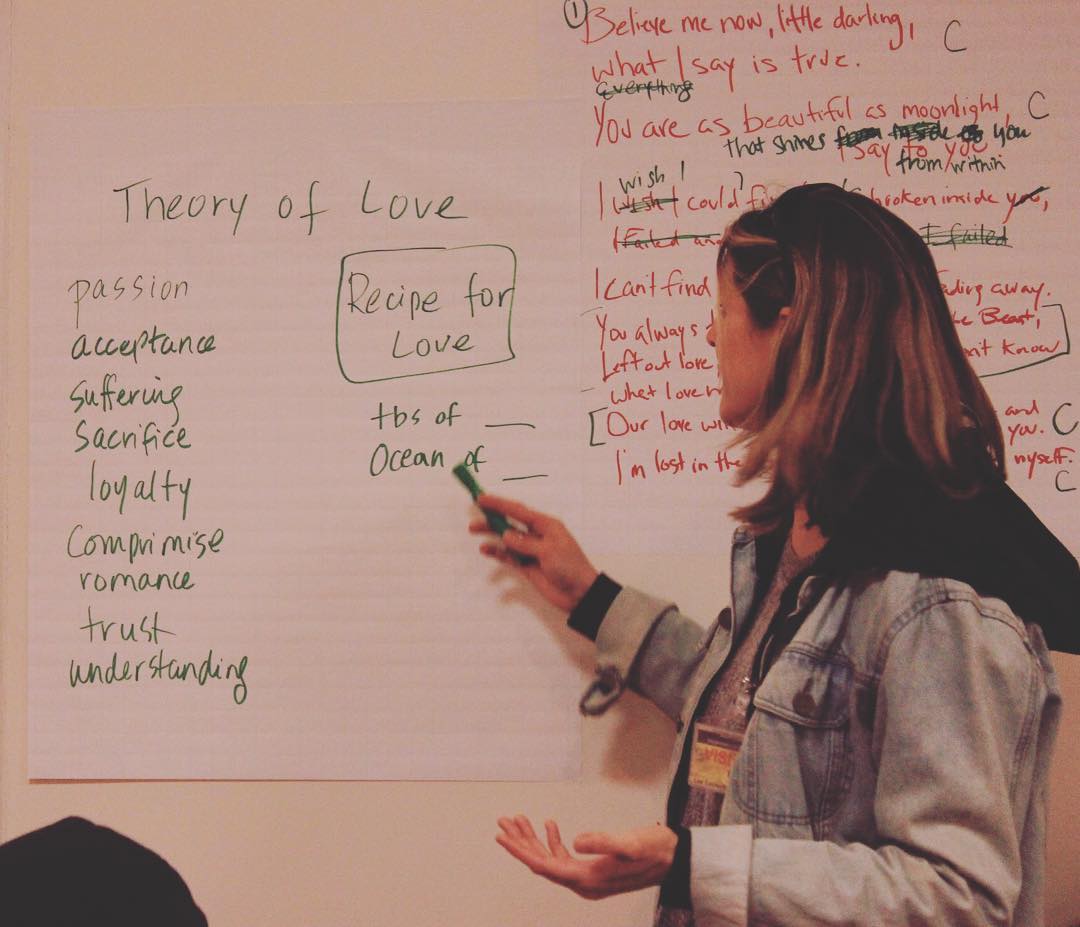
When we plan a songwriting project, we come up with a theme that serves as our musical banner and inspiration for the writing that also ties into repertoire we bring as a professional ensemble. This first year, our theme was “Transformation” and our Decoda piece was the 35-minute tone poem, “Metamorphosen” by Richard Strauss.
We kicked off the week with a performance in the round for our songwriting participants. The septet set up in a circle and the men enveloped us in a larger circle. I remember it being freezing cold in the chapel as the South Carolina heat demanded maximum air conditioning. Before we played, we had a brainstorming session with the men around the idea of transformation. Some offered that the word captures a positive vibe and implies an action of changing for the better; implications I think every person in the room, incarcerated or not, has experience with.
The performance that ensued was one that none of us will ever forget.
The Strauss is a powerful piece on its own, written after the bombing of Dresden in WWII. Sharing it with these men in the context of this prison chapel shook me to my core. This was the most important performance I have been a part of.
Forget Carnegie Hall. This was it.
The music-making and active listening happening over that half-hour confirmed the reasons why music is so essential in our lives. Music has the extraordinary ability to bring humans together and to communicate the realm of the human experience. We were ready to write.
The Process
The writing process is messy business; but it’s especially challenging when people are being asked to write together in groups. We start most of our songwriting workshops composing a large group anthem. Usually the lyrics come first, then the rhythms, then the melodic and harmonic underpinnings. With a group anthem, we are able to model the process and have a successful experience right away; one song done (check!).
From there we split ourselves into smaller groups making sure there is a healthy balance of Decoda facilitators and leaders from the BLIC music program mixed with folks who may have never had a music making experience before.
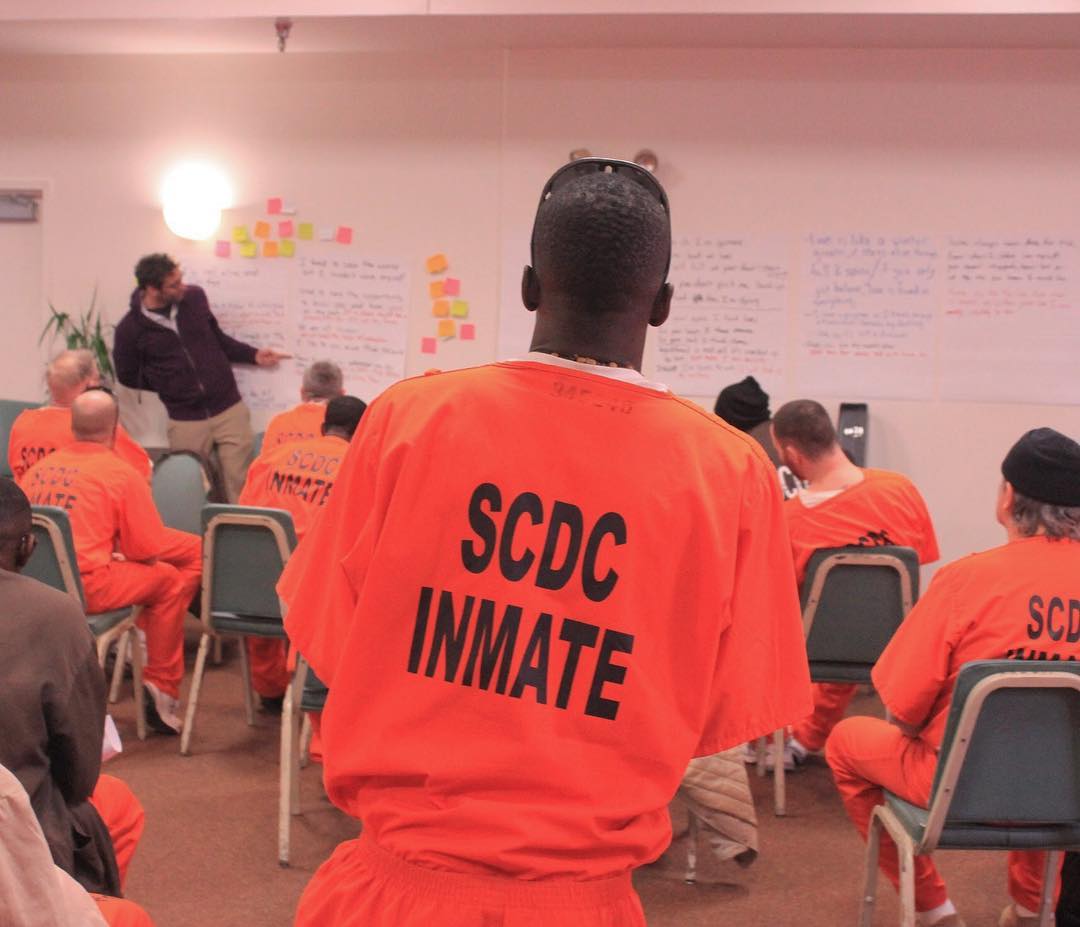
Like anything in life, the messy moments are necessary. It’s where we learn the most about ourselves and about others and about the process. If you think about it, everyone is an expert in music. You don’t need to be a virtuosic violinist to have a favorite song, artist, or genre. People like what they like and feel confidence in their choices. The tricky part is the collaboration element, especially when you have two people with strong musical opinions coming from two distinct genres!
Two of our more powerful musicians from the prison — one an accomplished pianist with an astonishing ear and the other a talented singer with a booming baritone voice — were paired together to write a song. The pianist loved country music and the singer was an R&B die-hard. Needless to say, their writing process was off to a rocky start because of their conflicting tastes. We encouraged them to let go of the genre stereotypes and just write.
After a few days of figurative blood, sweat, and tears, this duo went from difficult to dynamic and the result of their collaboration was a stunning country hit with an R. Kelly style bridge called “Express My Love.” And I’d pay to hear Vince Gill and John Legend sing this song together!
Here is “Express My Love” from a live performance at Lee Correctional Institution (copyright: BLICODA – Decoda & South Carolina Department of Corrections)
Over the years the songwriting process at Lee has become almost effortless. After all, not only are the men becoming better musicians, but we are becoming better facilitators. The growth through these workshops is both macro and micro, with individual and group development. We even have a collective band name now: BLICODA.
The Performance
After four days of six-to-eight hours of songwriting per day, a setlist is realized, usually around 20 to 25 songs. During the final days of the workshop week, we set up the house band, the chorus, and the backup band (Decoda) and begin a rigorous rehearsal process.
These rehearsals are intense. There are a lot of people in the room, there are great expectations mixed with excitement, and there are a lot of nerves. We spend hours tech-ing sound, learning the choruses, rehearsing the songs, practicing the stage transitions – every bit as serious and thoughtful as a professional chamber music rehearsal.
The men are patient, supportive, and earnest as they bring each song into its best shape.
When I think about these culminating concerts, I am amazed by the bravery of these men. They have the courage to get up in front of their fellow residents, the officers, the staff, the SCDOC Director, and their families. They sing and play and express themselves through music, many of them for the first time in their lives.
It’s heroic to witness, and a privilege to stand next to them. These culminating performances are a vital piece of the puzzle. They bring a sense of accomplishment and are a celebration of dignity, all inside a prison’s walls. On these concert days, inside the chapel, because of the music, there is hope. You can smell it, taste it, hear it, see it, and feel it.
This is the reason why I play music.
+ Read more on Flypaper: “Reflecting on the Impact of a Women’s Prison Choir on Social Harmony”
The Letdown
The hardest part of these projects is the letdown afterward. We all feel it and it’s easier for a person with freedom to cope with the loss of the experience than someone who is incarcerated.
These songwriting projects are funded by grants and very generous donors who give their support to make it possible for Decoda to co-write with these incarcerated musicians. The difficulty for Decoda, and any professional performing artist or entity, is that we are constantly on to the next thing. Many of us hold multiple jobs — teaching at universities, running nonprofits (such as musicambia.org, a fantastic prison program run by our violist Nathan Schram), performing on Broadway and in professional string quartets, etc.
Once these magical weeks are over and Decoda disperses, the residents are left with the memories and songs from a week in which they found symbolic freedom. The undeniable letdown is justly sobering and emotionally painful for many of them. Knowing that is a distressing reality to reckon with.
Hope and Empathy
In regards to this shortfall of the process, one of the big questions I ask myself following each residency is, “is it better to do something than to not do it at all?” I say “yes.” In my opinion, if a person has the chance to have an artistic experience which helps to reconnect them with their own hope and empathy, then definitely, without a doubt, “yes.”
While our goal as an ensemble is to not only make great music with these incarcerated participants, the outcome every year is a re-tapped validation of hope and empathy inside all of us.
Sometimes, because of the pressures of life and the inequity and failings of our society, hope and empathy can be lost, broken or stolen. People, especially the incarcerated, deserve the chance to reawaken, foster, and reclaim these ideals as their own again. And if music is a mode for this, then I say: “PLAY ON!”
Improve all aspects of your music with Soundfly!
Subscribe to get unlimited access to our premium online courses, an invitation to join our members-only Slack community forum, exclusive perks from partner brands, and massive discounts on personalized mentor sessions for guided learning. Learn what you want, whenever you want, with total freedom.
—
 Cellist Claire Bryant enjoys an active and diverse career as a performer of chamber music, contemporary music, and the solo cello repertoire. She is equally passionate and committed to her work as an educator and advocate for the inclusion and impact of the arts in society. Claire is the director of Decoda’s justice initiative, Music for Transformation which brings collaborative songwriting workshops to correctional institutions. Decoda’s work in corrections was celebrated at President Obama’s White House with invitations in 2015 and 2016 to perform and share their work at the event, Innovation & the Arts: Prison Reform & Reentry in the 21st Century. Claire joined the faculty of the University of South Carolina School of Music as Assistant Professor of Cello.
Cellist Claire Bryant enjoys an active and diverse career as a performer of chamber music, contemporary music, and the solo cello repertoire. She is equally passionate and committed to her work as an educator and advocate for the inclusion and impact of the arts in society. Claire is the director of Decoda’s justice initiative, Music for Transformation which brings collaborative songwriting workshops to correctional institutions. Decoda’s work in corrections was celebrated at President Obama’s White House with invitations in 2015 and 2016 to perform and share their work at the event, Innovation & the Arts: Prison Reform & Reentry in the 21st Century. Claire joined the faculty of the University of South Carolina School of Music as Assistant Professor of Cello.
